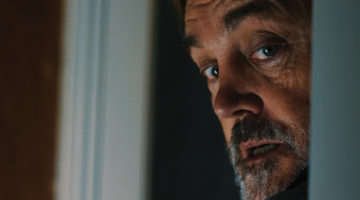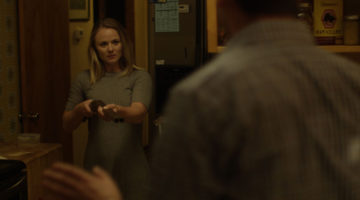TAD 2014 Review: Refuge
There is no particular beginning or end to Refuge, as this post-apocalyptic story of suspense aims to put you in a familiar story where you sympathize with characters.
It works to some extent, as we follow a group of survivors of a terrible epidemic living in a world where there are a lot of violent, desperate men. This group, which includes two burly men, a mother, and a young girl, navigates a world common to many genre film enthusiasts, so that The Refuge seems to just jump into things is acceptable.
As the film progresses though, it feels more episodic, like the story is indeed a part of The Walking Dead mythology and not instead a singular film. It’s not zombies that the survivors feel, instead it’s a deadly plague and all those who have themselves made it through to this other side.
It’s a tense world, and that uncertain, dreary atmosphere is created immediately and effectively by director and Andrew Robertson and writer Lilly Kanso, also Robertson’s wife. Grays and dark blues fill the screen – there are no colours here in this bleak future. What’s more somewhat shaky camera stresses anxiety and unpredictability. Underneath the focused cinematography is a chilling, hypnotic score from Swedish duo Carbon Based Lifeforms.
The success or failure of the film rests on how quickly, if at all, you side with the survivors. Refuge is methodical and somewhat unconventional. The plot turns halfway through the film, and as it has an intimate focus around one family, we’re living in a small world where there won’t be any major changes; that is to say, the world isn’t suddenly going to become safe. The good will built up throughout the film will be required too during a questionable finale.
In that Refuge works to immerse the viewer into an environment that is uncomfortable and unhealthy. It’s a tough, slow watch at times, but the jarring camera, invasive sound, and sudden spurts of violence serve to place the audience as near to this existence as possible.
[star v=25]



